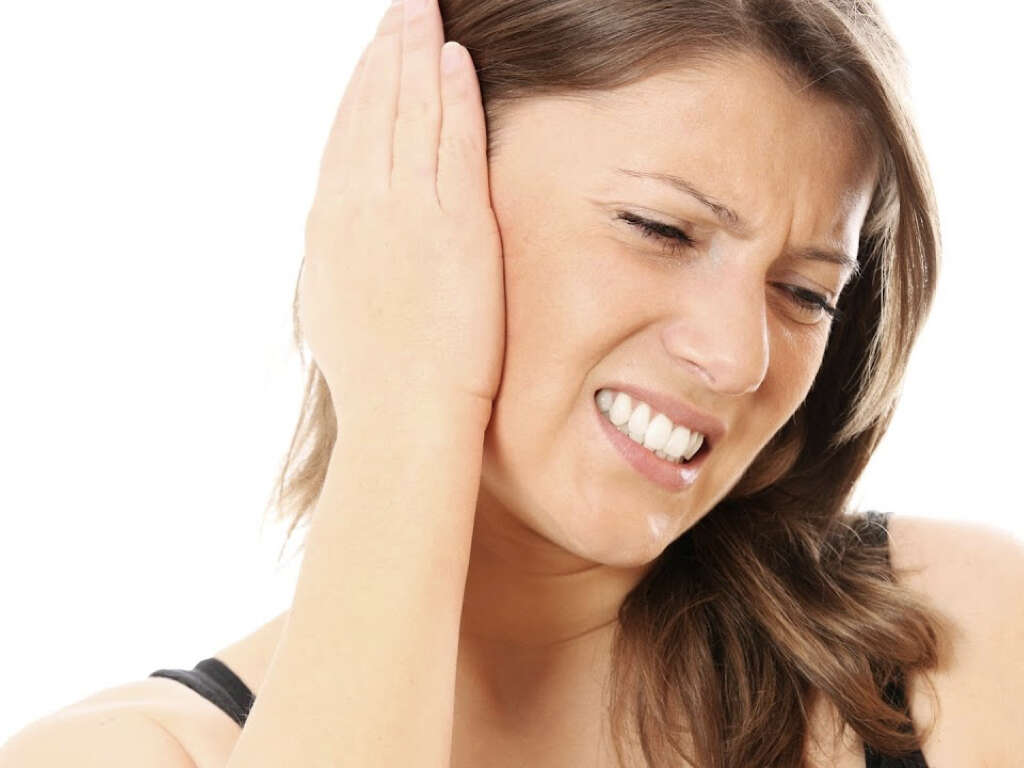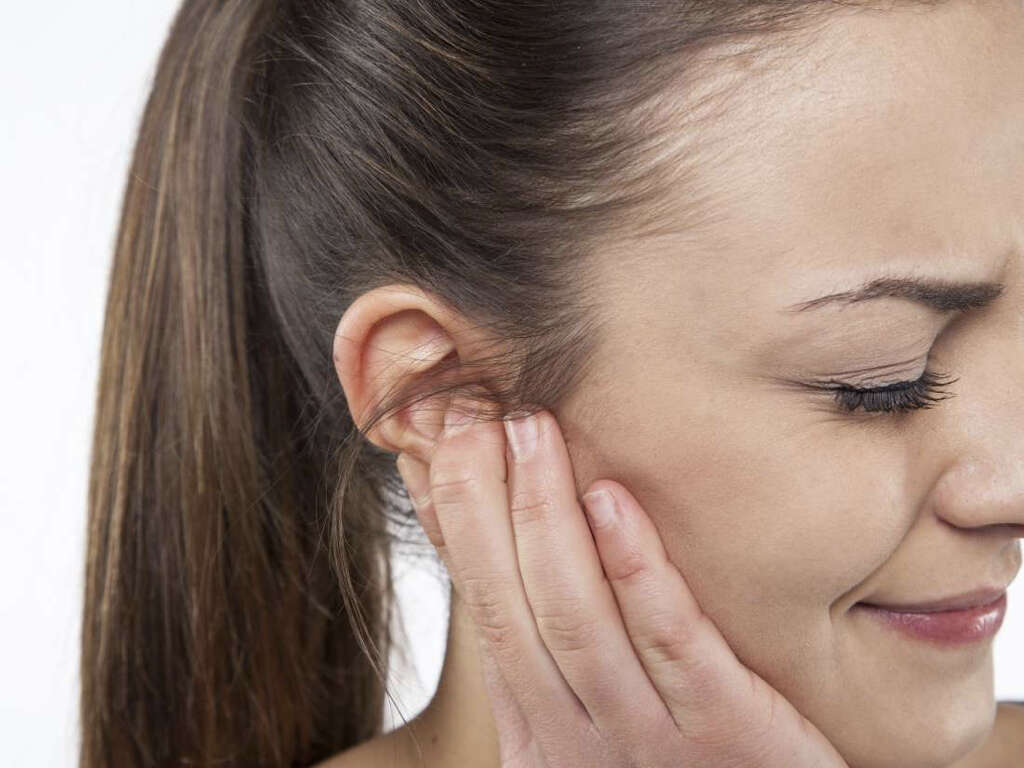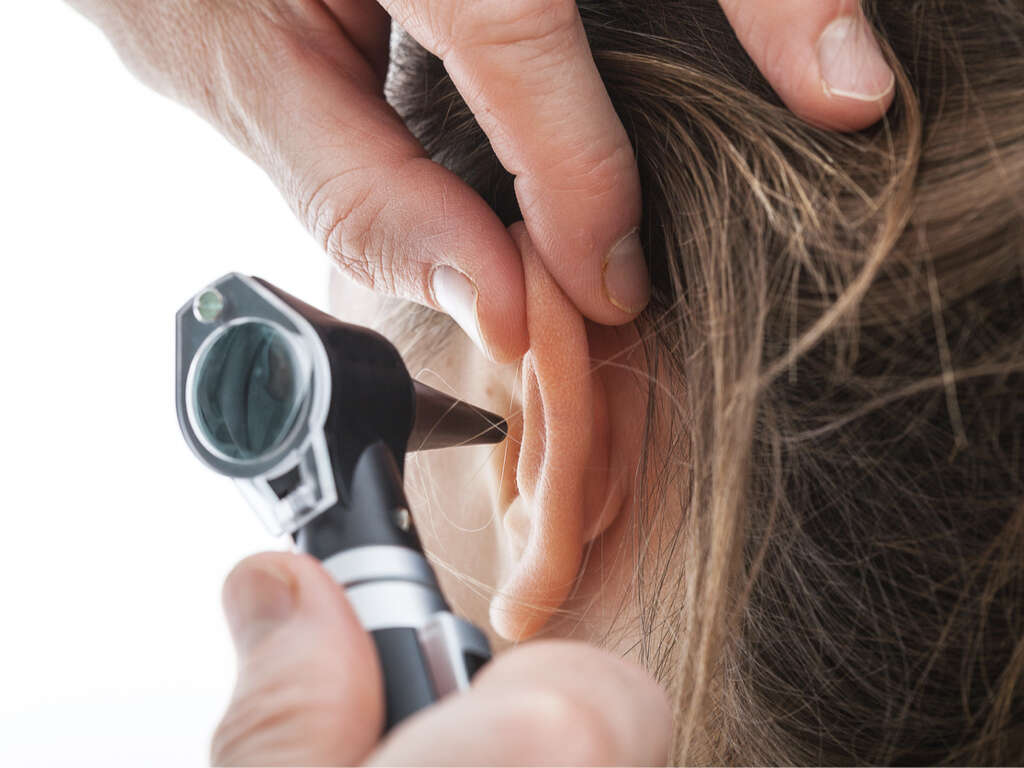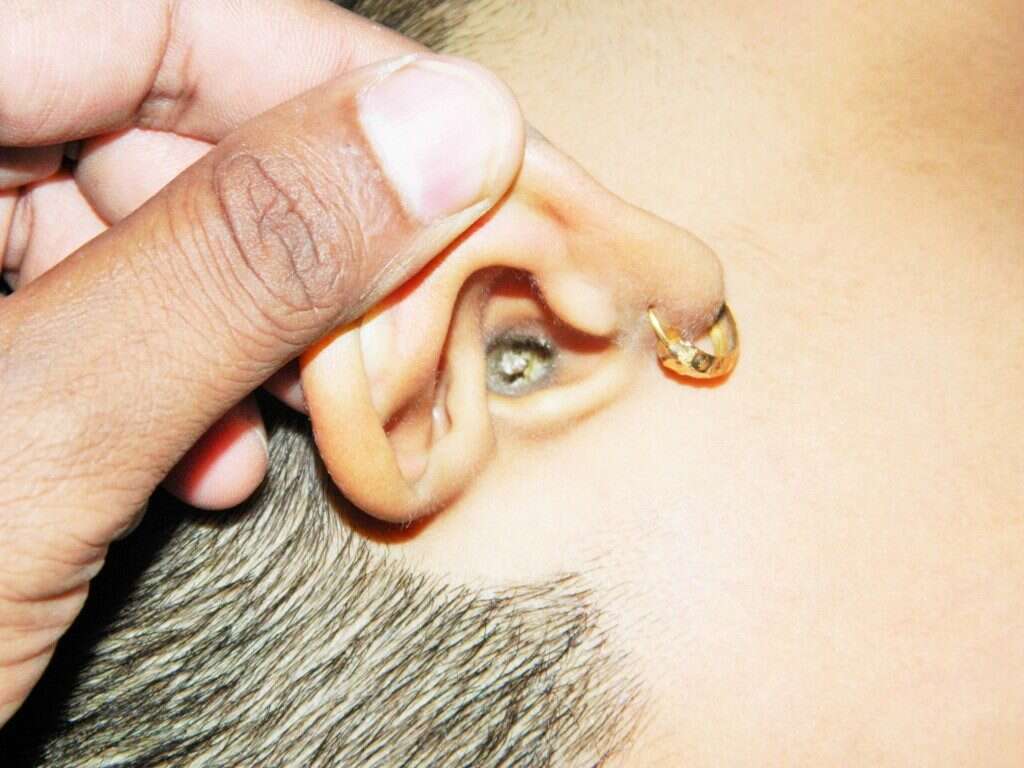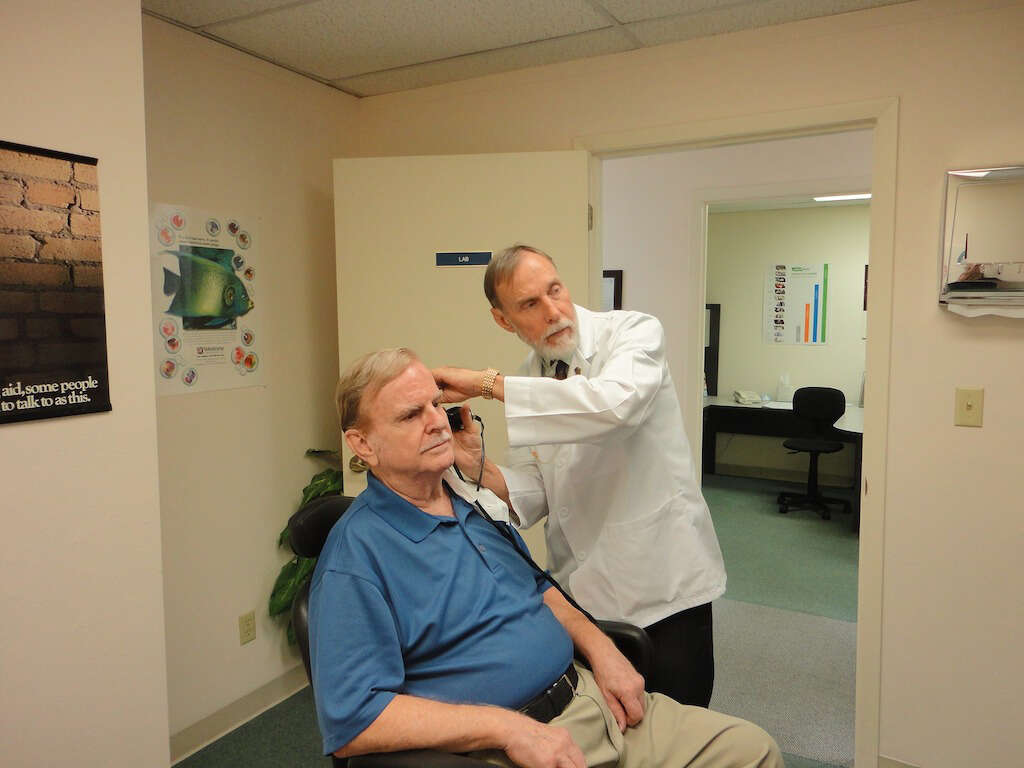10 Symptoms of Labyrinthitis
The labyrinth is the part of the inner ear that houses the vestibular system, which senses changes in head position. Labyrinthitis is an inflammation of the inner ear that causes vertigo. It can occur as a single attack or as multiple attacks, or it can be a persistent condition. Labyrinthitis eventually subsides in about three to six weeks. While the cause of labyrinthitis is unclear, experts believe that viral or bacterial infections, extreme stress, head injury, or allergies are some possible causes. It may also be a side effect of some medications.
Approximately 30 percent of individuals who have labyrinthitis had a common cold before developing the condition. Some cases involving bacterial or viral infections result in permanent hearing loss, but that is rare. Labyrinthitis usually affects individuals who are thirty to sixty years old, regardless of race or gender. The condition affects about thirty-five people per million annually.
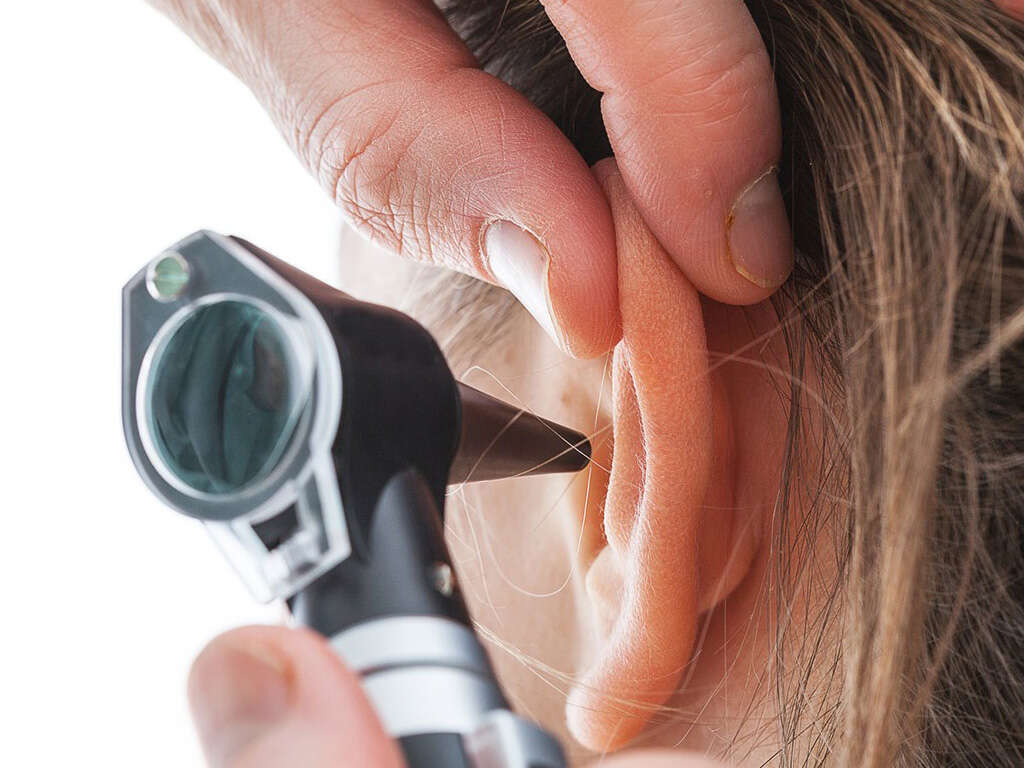
Symptom #1: Vertigo
Vertigo is a sensation of dizziness where an individual feels as if his or her surroundings are swaying or spinning when they are not, which can affect balance. Causes of vertigo include labyrinthitis, benign paroxysmal positional vertigo (BPPV), Meniere’s diseases, and migraine. Vertigo is also a possible side effect of certain medications. A vertigo attack can last several seconds, hours, days, or even months.
To ease vertigo symptoms, patients should lie still in a dark and quiet room, move their head slowly during activities, sit or rest if an attack starts, turn on lights at night, use a walking stick for extra support, sleep with more pillows to raise the head, get out of bed slowly, and relax. (Anxiety can worsen vertigo.)
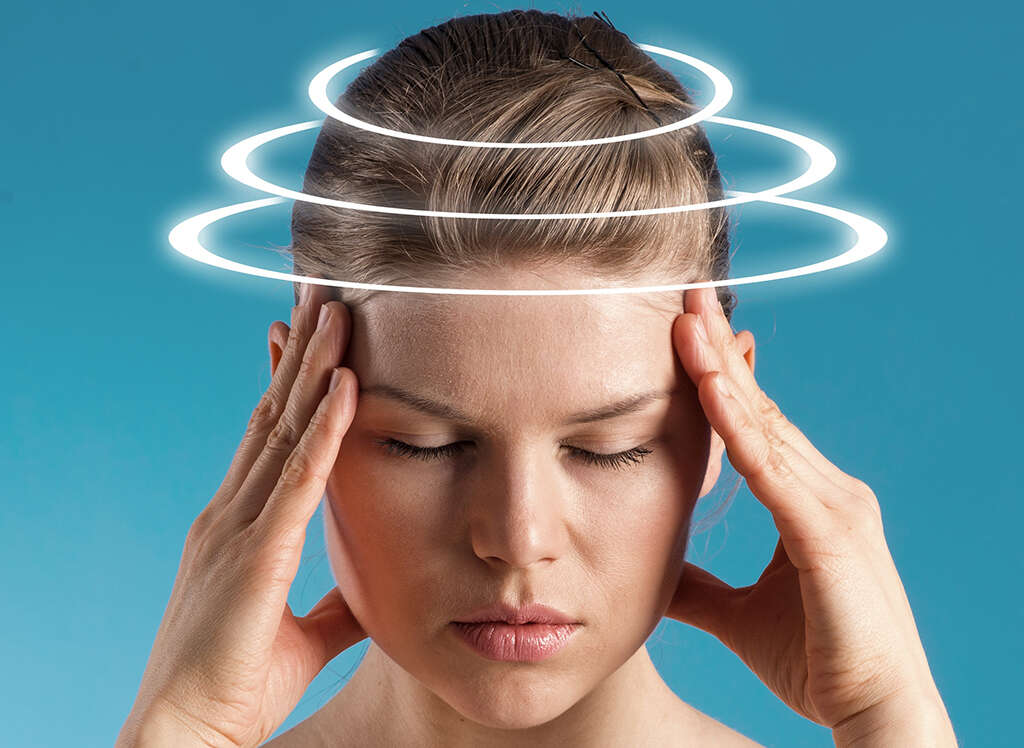
Symptom #2: Changes in Vision
Labyrinthitis can cause vision changes, such as blurry vision or double vision. Double vision is also known as diplopia. In diplopia, the patient sees two images when looking at only one object. It may affect one or both eyes.
Causes of diplopia include a lazy eye, dry eye syndrome, astigmatism, cataracts, and keratoconus. Some treatments of double vision are eye exercises, wearing an eyepatch, wearing prescribed glasses or contact lenses, or surgery.

Symptom #3: Nausea and Vomiting
Nausea is a sensation of unease and discomfort that often includes an urge to vomit. Vomiting is the involuntary and forceful expulsion of stomach contents through the mouth and sometimes the nose. It is also known as puking, barfing, emesis, or throwing up.
Both nausea and vomiting are nonspecific symptoms that are often observed in various conditions, such as pregnancy, food poisoning, gastroenteritis, viral infections, bacterial infections, and parasitic infections. Nausea and vomiting can be managed symptomatically using antiemetic medications, such as ondansetron and metoclopramide.

Symptom #4: Anxiety
Anxiety is a feeling of excessive worry, uneasiness, or turmoil. It is often accompanied by nervous behaviors, such as pacing back and forth, rumination, and somatic complaints. Patients with anxiety often experience associated symptoms, such as restlessness, fatigue, muscular tension, and loss of focus.
There are many types of anxiety, such as existential anxiety, mathematical anxiety, somatic anxiety, test anxiety, and social anxiety. Treatment of anxiety often involves avoiding stimulants like caffeine and taking medications, such as benzodiazepines.

Symptom #5: Dizziness
Dizziness is an impairment of someone’s stability and spatial perception. Many people often use the term dizziness to describe vertigo (the false perception of swaying or spinning surroundings), disequilibrium (the sensation of being off-balance), presyncope, and light-headedness, but it should not be confused with vertigo.
Causes of dizziness include inadequate blood or oxygen supply to the brain, loss of visual cues, and disorders of the inner ear. It also can be a side effect of some medications. Nausea and vomiting often develop because of dizziness. Some conditions associated with dizziness are Meniere’s disease labyrinthitis, BPPV, otitis media, acoustic neuroma, motion sickness, pregnancy, low blood pressure, and anemia.

Symptom #6: Poor Balance
Poor balance is a nonspecific symptom observed in many conditions, such as ear infections, inner ear issues, head injury, poor circulation, low or high blood pressure, neurological disorders, and aging. It also can be a side effect of certain medications.
Poor balance can result in falls that cause broken bones and other injuries. In particular, the elderly who suffer from poor balance are prone to fractures and broken bones from a fall. Some related issues include difficulty walking, blurry vision, disorientation, fear or anxiety, difficulty focusing, tiredness, diarrhea, and changes in blood pressure or heart rate.

Symptom #7: Tinnitus
Tinnitus, or ringing in the ears, is the perception of sound when there is no external sound present. Many patients describe the sound as a high-pitched ringing, but it also may be a humming, buzzing, clicking, whooshing, or throbbing. It can occur in one or both ears. Patients with tinnitus should relax, get adequate sleep, and join a support group (if they are interested). Listening to soft and calming music may also help.
Some therapies available for tinnitus include cognitive behavioral therapy, tinnitus retraining therapy, and tinnitus counseling. Besides labyrinthitis, tinnitus may also be a symptom of hearing loss, Meniere’s disease, diabetes, thyroid disorders, anxiety, depression, and multiple sclerosis, or it could be a side effect of some medications.
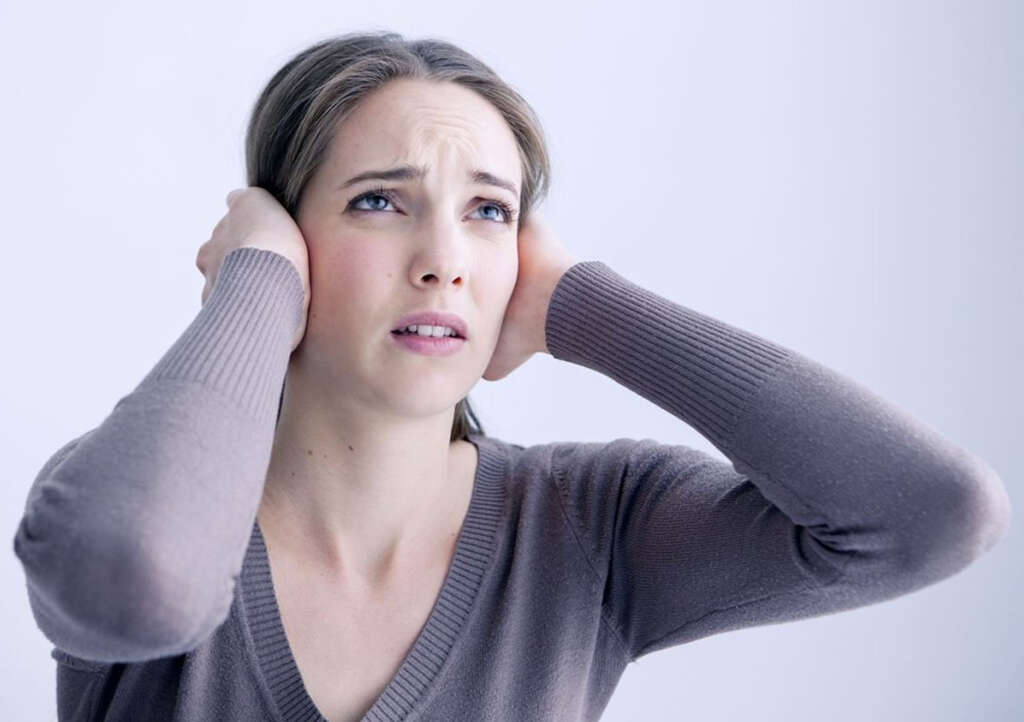
Symptom #8: Loss of Hearing
Hearing loss can be either temporary or permanent. Patients often have difficulty hearing others, need to concentrate to understand what others are saying, constantly misunderstand others or ask others to repeat themselves, and watch or listen to television at a high volume. Some causes of sudden hearing loss are excess earwax, an ear infection, a perforated eardrum, and Meniere’s disease.
Gradual hearing loss is usually due to aging or damage to the ear after exposure to loud noises. Other causes of gradual hearing loss include a bony growth in the ear, a buildup of skin cells in the ear, and a condition known as glue ear. Treatment depends on the underlying cause and may include hearing aids and implants.
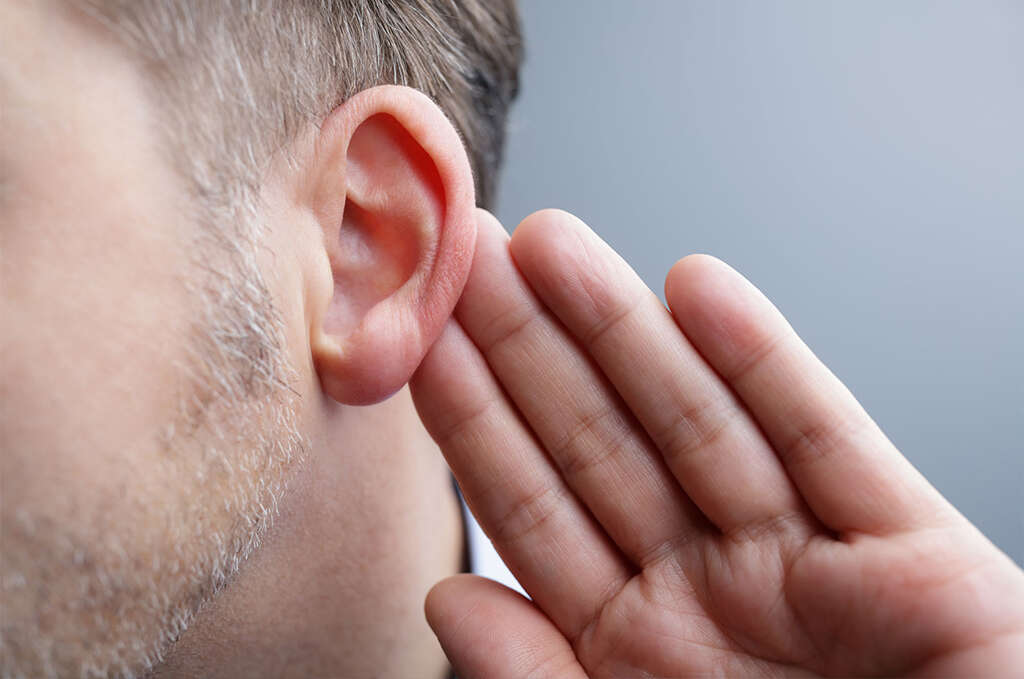
Symptom #9: Headache
A headache is pain or discomfort anywhere in the neck or head. It is a common and nonspecific symptom seen in various conditions and diseases, such as extreme stress, dehydration, viral infections, high blood pressure, and brain tumors.
Types of headaches include cluster headaches, tension headaches, and migraines. Headaches can be managed using painkillers, such as paracetamol (acetaminophen), or nonsteroidal anti-inflammatory drugs (NSAIDs) like ibuprofen or naproxen sodium.

Symptom #10: Ear Pain and Discharge
Labyrinthitis often develops after a viral infection, such as a cold or the flu. However, some patients with labyrinthitis may experience pain in the affected ear, which is not a normal feature of viral infections. Instead, ear pain may indicate that there is a bacterial infection in the middle ear that has spread to the inner ear.
If so, a bacterial infection also may cause fluid to enter the labyrinth and produce pus. Both ear pain and discharge are nonspecific symptoms that can occur in many conditions, so a culture of the ear discharge may be taken to determine the exact cause. The symptoms usually subside once the labyrinthitis is treated.





